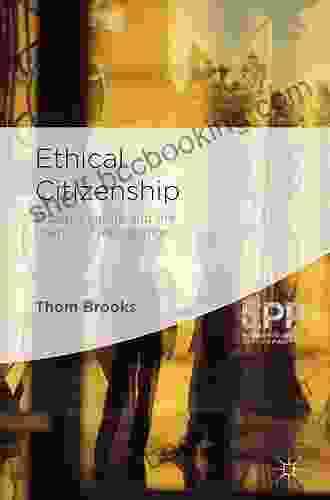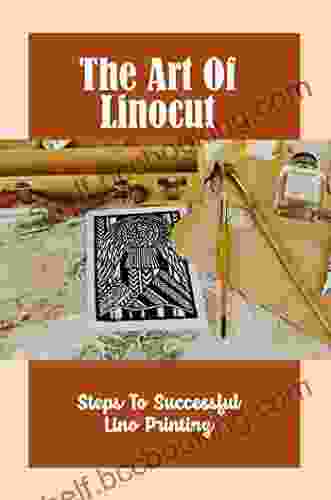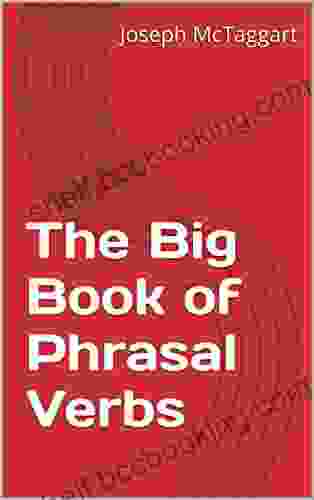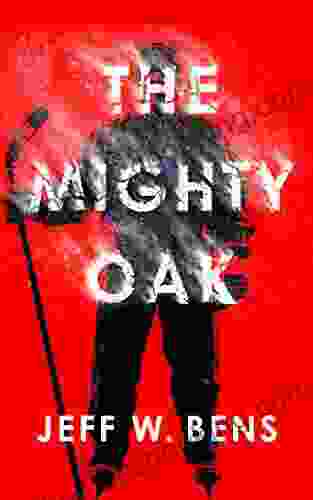British Idealism and the Politics of Recognition: A Journey through Ethical and Political Thought

In the realm of philosophy, British Idealism emerged as a dominant intellectual force in the late 19th and early 20th centuries, leaving an indelible mark on the landscape of ethical and political thought. This book, "British Idealism and the Politics of Recognition," delves into the profound ideas of British Idealists, particularly Hegel, Bradley, Green, and Bosanquet, illuminating their significant contributions to our understanding of recognition and its implications for political and ethical life.
4.6 out of 5
| Language | : | English |
| File size | : | 946 KB |
| Text-to-Speech | : | Enabled |
| Screen Reader | : | Supported |
| Enhanced typesetting | : | Enabled |
| Word Wise | : | Enabled |
| Print length | : | 261 pages |
Hegel's Legacy: The Dialectic of Recognition
Georg Wilhelm Friedrich Hegel, the influential German philosopher, stands as a towering figure in the development of British Idealism. His concept of the "dialectic of recognition," articulated in masterworks like "The Phenomenology of Spirit" and "The Science of Logic," forms the cornerstone of this philosophical tradition.
Hegel posits that individual self-consciousness emerges through a process of reciprocal recognition. In relationships with others, we seek acknowledgment and confirmation of our own existence and worth. This recognition, however, is not merely a passive act but rather a dynamic process that involves struggle and conflict. Through these interactions, individuals transcend their initial egocentricity and develop a sense of communal belonging.
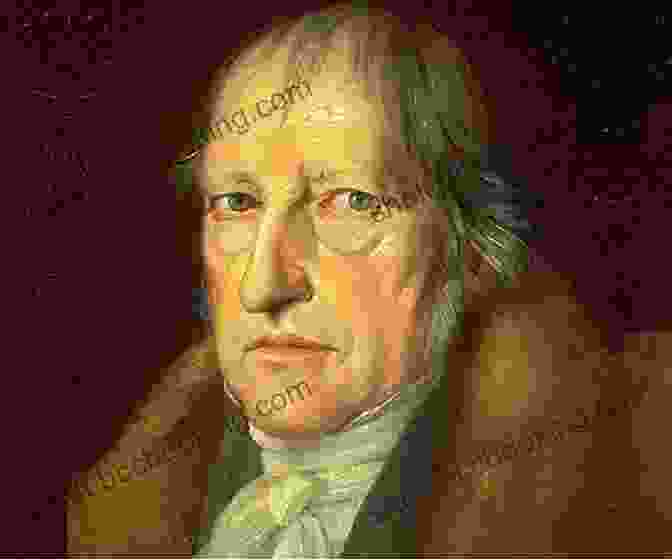
F.H. Bradley: The Absolute and the Finite
Francis Herbert Bradley, a leading British Idealist, extended Hegel's ideas by introducing the concept of the "Absolute." In his seminal work, "Appearance and Reality," Bradley argues that the phenomenal world, with its apparent divisions and contradictions, is ultimately an expression of a deeper, unified reality – the Absolute.
Bradley contends that the finite individual is merely an appearance within the Absolute, and true knowledge lies in recognizing the interconnectedness of all things. This realization leads to a profound sense of humility and a rejection of the narrow self-centeredness that often plagues human existence.
T.H. Green: The Ethics of Self-Realization
Thomas Hill Green, another influential British Idealist, focused his philosophical inquiries on the ethical dimensions of human life. In works such as "Prolegomena to Ethics" and "Lectures on the Principles of Political Obligation," Green argues that the ultimate goal of ethics is the "realization of the self." This entails not only individual self-fulfillment but also a recognition of the common good and the interconnectedness of all members of society.
Green's ethics emphasizes the importance of active citizenship and the pursuit of social justice. He believed that the recognition of our mutual obligations and responsibilities is essential for a harmonious and flourishing society.
Bernard Bosanquet: The State and the Individual
Bernard Bosanquet, a prominent member of the British Idealist movement, explored the complex relationship between the state and the individual. In his magnum opus, "The Philosophical Theory of the State," Bosanquet argues that the state is not an external entity imposed upon individuals but rather an organic expression of the common will and the embodiment of the ethical life.
Bosanquet emphasizes the importance of recognizing the state as a vehicle for the realization of individual freedom and the promotion of social welfare. He rejects the notion of a radical separation between the individual and the state, instead advocating for a harmonious integration that fosters both individual flourishing and collective well-being.
The Politics of Recognition: Ethical and Political Implications
The ideas of British Idealists have profound implications for our understanding of the politics of recognition. By highlighting the importance of reciprocal recognition, interconnectedness, and the common good, British Idealism provides a compelling framework for addressing contemporary social and political challenges.
The book explores how the insights of British Idealists can inform our approach to issues such as social justice, multiculturalism, and global citizenship. It argues that recognition is not merely a matter of acknowledging individual identities but also entails recognizing the value of all human beings and the importance of creating inclusive and equitable societies.
: The Enduring Legacy of British Idealism
British Idealism, with its emphasis on recognition, the rejection of individualism, and the pursuit of the common good, remains a vital and relevant philosophical tradition in the 21st century. By engaging with the ideas of Hegel, Bradley, Green, and Bosanquet, we gain valuable insights into the ethical and political dimensions of human existence.
This book serves as a comprehensive guide to the multifaceted thought of British Idealists, offering a deeper understanding of their contributions to our understanding of recognition and its implications for political and ethical life. It is an essential resource for scholars, students, and anyone interested in exploring the profound ideas that continue to shape our world.
4.6 out of 5
| Language | : | English |
| File size | : | 946 KB |
| Text-to-Speech | : | Enabled |
| Screen Reader | : | Supported |
| Enhanced typesetting | : | Enabled |
| Word Wise | : | Enabled |
| Print length | : | 261 pages |
Do you want to contribute by writing guest posts on this blog?
Please contact us and send us a resume of previous articles that you have written.
 Book
Book Novel
Novel Page
Page Chapter
Chapter Text
Text Story
Story Genre
Genre Reader
Reader Library
Library Paperback
Paperback E-book
E-book Magazine
Magazine Newspaper
Newspaper Paragraph
Paragraph Sentence
Sentence Bookmark
Bookmark Shelf
Shelf Glossary
Glossary Bibliography
Bibliography Foreword
Foreword Preface
Preface Synopsis
Synopsis Annotation
Annotation Footnote
Footnote Manuscript
Manuscript Scroll
Scroll Codex
Codex Tome
Tome Bestseller
Bestseller Classics
Classics Library card
Library card Narrative
Narrative Biography
Biography Autobiography
Autobiography Memoir
Memoir Reference
Reference Encyclopedia
Encyclopedia Jeannine Ouellette
Jeannine Ouellette Jan Grue
Jan Grue Jeff Gramm
Jeff Gramm Sarah Edmondson
Sarah Edmondson Jason Ross
Jason Ross Myatt Murphy
Myatt Murphy Kendall Rose
Kendall Rose Ole Qvist Sorensen
Ole Qvist Sorensen Les Stroud
Les Stroud Prepper Living
Prepper Living Jann S Wenner
Jann S Wenner Janet Carlson
Janet Carlson Jean Cocteau
Jean Cocteau Rudolph E Tanzi
Rudolph E Tanzi Saifedean Ammous
Saifedean Ammous Sylvia Williams Dabney
Sylvia Williams Dabney Yumiko Alexander
Yumiko Alexander Jane Drake Brody
Jane Drake Brody Joshua Kern
Joshua Kern Jan Kamienski
Jan Kamienski
Light bulbAdvertise smarter! Our strategic ad space ensures maximum exposure. Reserve your spot today!

 Edgar Allan PoeMagic of the Depots 1923: A Photographic Odyssey Through the Golden Age of...
Edgar Allan PoeMagic of the Depots 1923: A Photographic Odyssey Through the Golden Age of...
 Jaime MitchellUnlocking Students' Writing Potential: Inviting Them to Develop Skill and...
Jaime MitchellUnlocking Students' Writing Potential: Inviting Them to Develop Skill and... Bradley DixonFollow ·11.6k
Bradley DixonFollow ·11.6k Theo CoxFollow ·3.5k
Theo CoxFollow ·3.5k Devin RossFollow ·18.3k
Devin RossFollow ·18.3k Joseph HellerFollow ·17.6k
Joseph HellerFollow ·17.6k Thomas PowellFollow ·15.3k
Thomas PowellFollow ·15.3k Gil TurnerFollow ·3.6k
Gil TurnerFollow ·3.6k Chad PriceFollow ·18.6k
Chad PriceFollow ·18.6k Diego BlairFollow ·5.7k
Diego BlairFollow ·5.7k

 Carlos Drummond
Carlos DrummondHow Companies Win the Mergers and Acquisitions Game:...
In today's...
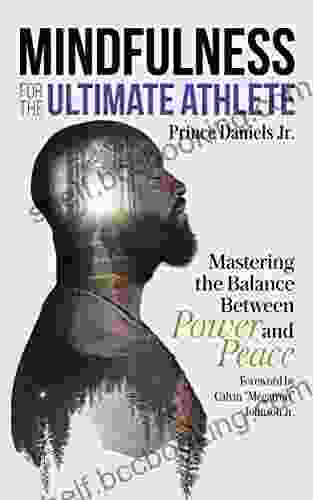
 Craig Blair
Craig BlairMastering The Delicate Balance Between Power And Peace
In today's ever-evolving world, the interplay...

 Wade Cox
Wade CoxUnveiling the Zen of Golf: A Journey to Inner Mastery
: The Harmony of Mind,...

 Gerald Bell
Gerald BellDarkness Triumphant: Three of the Catmage Chronicles
Synopsis ...

 Henry James
Henry JamesDarkness Rising: One of the Catmage Chronicles
A Captivating Fantasy Adventure...
4.6 out of 5
| Language | : | English |
| File size | : | 946 KB |
| Text-to-Speech | : | Enabled |
| Screen Reader | : | Supported |
| Enhanced typesetting | : | Enabled |
| Word Wise | : | Enabled |
| Print length | : | 261 pages |


